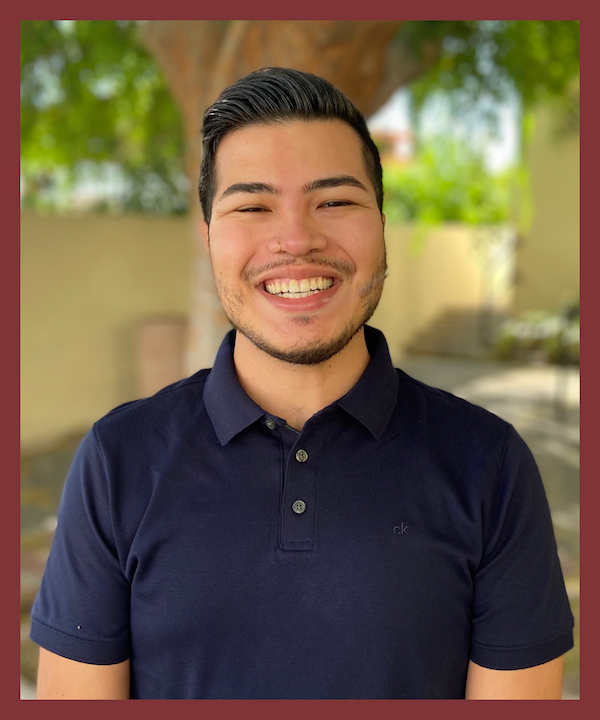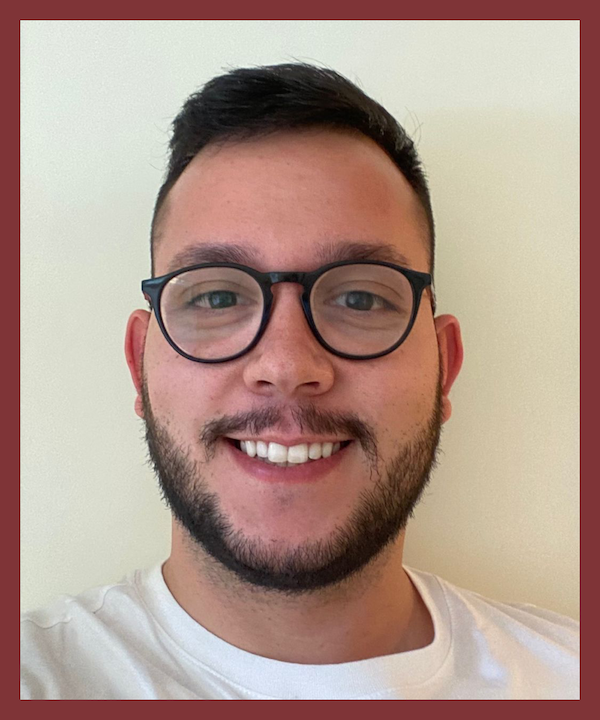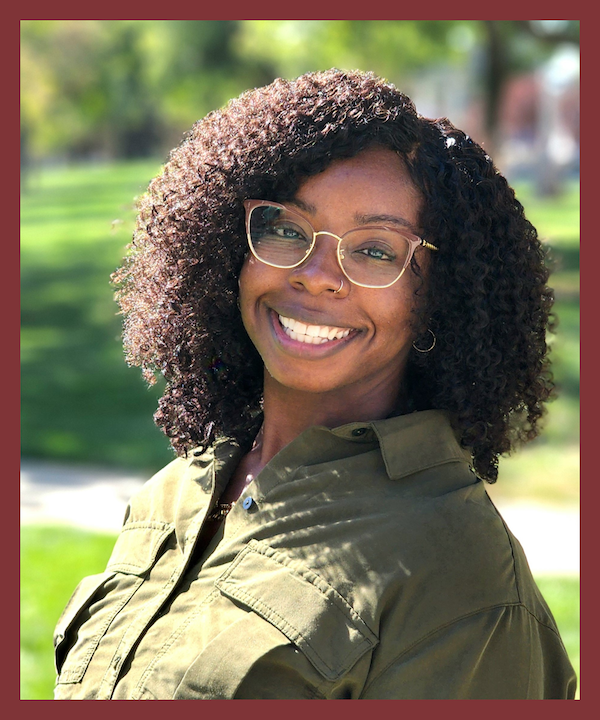Adam Landeros, MPH, MS
(He/They)
Adam J. Landeros is a first-year doctoral student mentored by Dr. Arturo Durazo in the Nicotine & Cannabis Policy Center. He holds a Master of Public Health and Master of Science in Behavioral Health from the University of San Francisco and a Bachelor of Science in Biology with a minor in Global Health from UCLA.
Adam's research examines the influence of family dynamics and community systems on health behaviors within marginalized communities, with particular focus on LGBTQ+ and Latino populations in California's San Joaquin Valley. Employing participatory and mixed methods approaches, his work ensures community voices guide the research process, resulting in culturally responsive interventions that address persistent health disparities. His approach integrates behavioral health science, policy advocacy, and program development to address health challenges across multiple intervention levels.
Currently, Adam is investigating how cultural factors, social support networks, and institutional policies shape health outcomes for LGBTQ+ Latinos. This work builds on his previous research analyzing perspectives on spirituality, family, and health among young Latinas, which informed the design of a culturally tailored intervention incorporating digital messaging and health coaching. His research collaborations with UCLA, USF, UCSF, and the San Francisco VA have advanced understanding in chronic disease intervention, suicide prevention, and community engagement strategies.
Adam's work aims to develop innovative approaches to community-engaged health interventions that center marginalized voices while producing actionable insights for reducing health disparities. By bridging gaps between health and social services and diverse population needs, his research fosters collaboration, innovation, and advocacy that advances health justice in underserved communities.
Looking ahead, Adam plans to expand his research to examine how intersectional identities shape health experiences and to develop evidence-based interventions addressing the unique needs of LGBTQ+ Latino communities. His ultimate goal is to establish a research center focused on LGBTQ+ Latino health equity that creates meaningful partnerships between academic institutions and the communities they serve.
Guilherme Zamperlin Redondo
(He/Him/His)
Guilherme Zamperlin Redondo is a 2nd year Ph.D. student in Public Health at the University of California, Merced, mentored by Dr. Arturo Durazo, Director of the Nicotine and Cannabis Policy Center (NCPC).
A doctoral student affiliated with NCPC, Guilherme brings clinical experience from his training as a dentist in Brazil and his care for patients affected by tobacco use. This background drives his research on novel intervention approaches to prevent and control tobacco and nicotine use.
Guilherme's interdisciplinary, community-engaged projects focus on developing and assessing public health interventions that are informed by the unique needs of residents in California’s San Joaquin Valley. Committed to scientific research, his work also involves collaboration with health organizations to address the disproportionate impact of the tobacco industry’s marketing on underrepresented communities.
LaMecia Ward, MPH, CHES
(She/Her/Hers)
LaMecia Ward is a first-year PhD student and UC Merced Chancellor’s Excellence Fellow with research interests in minority mental health, social determinants of health, and social epidemiology. She is a Certified Health Education Specialist and holds a BS in Food and Nutritional Sciences and an MPH in Health Promotion from California State University, Fresno.
She has worked extensively with community-based organizations and local leadership in Fresno County to advance minority health and amplify underserved voices. Her experiences deepened her commitment to addressing how factors like healthcare access, environmental conditions, and social support influence well-being.
As a Central Valley native, LaMecia’s research focuses on mental health disparities among African Americans, aiming to translate data into policies that promote health equity. Outside of her academic work, she enjoys time with family and friends, staying active, and exploring new experiences.

De’Liz G. Amador
(She/Her/Ella)
De’Liz G. Amador is a second-year PhD student in the Environmental Systems graduate group, mentored by Dr. Colleen C. Naughton, an assistant professor in the Civil & Environmental Engineering Department. She holds a Bachelor of Science in Environmental Engineering from the University of California, Merced.
De’Liz’s primary research focus is in wastewater surveillance, an interdisciplinary field between environmental engineering and public health. She is a part of the Healthy Central Valley Together project that monitors for infectious diseases like SARS-CoV-2, Influenza, Norovirus, and Measles in wastewater. With the NCPC, De’Liz is helping lead a pilot study that monitors nicotine and its metabolites in wastewater with the goal to better understand the smoking prevalence in California's Central Valley, in partnership with San Diego State University. Through her research, De’Liz aims to advance equity for underserved communities like the Central Valley.






